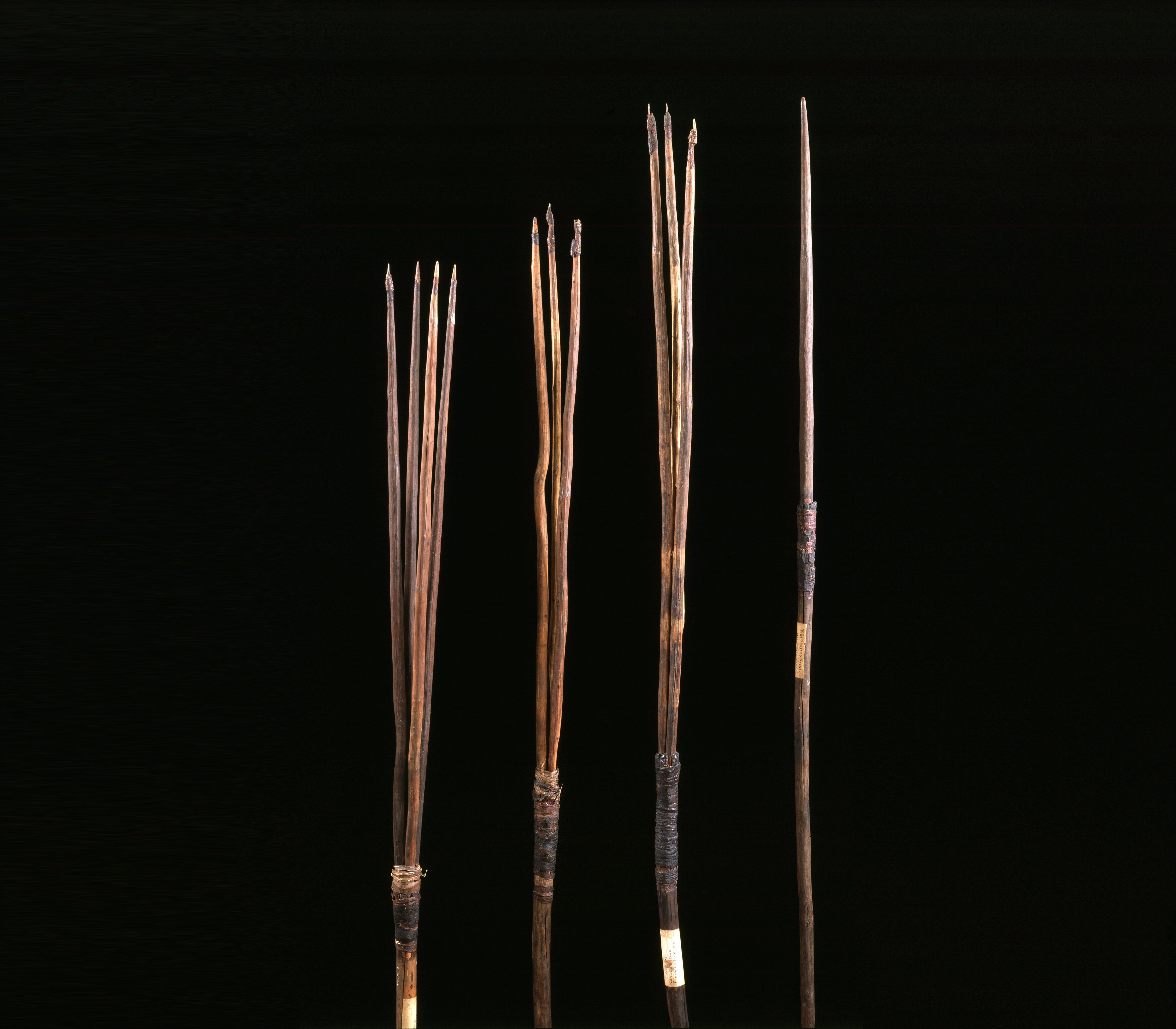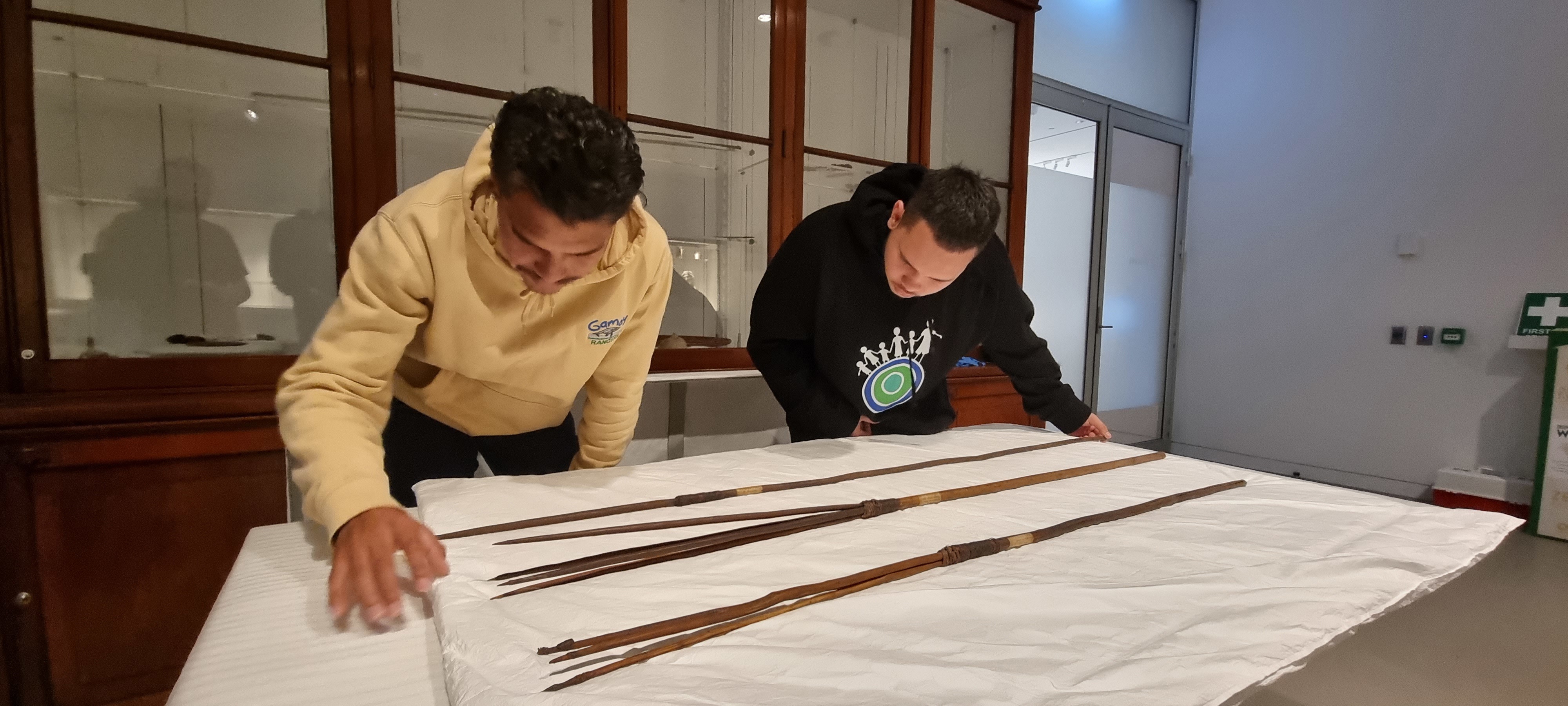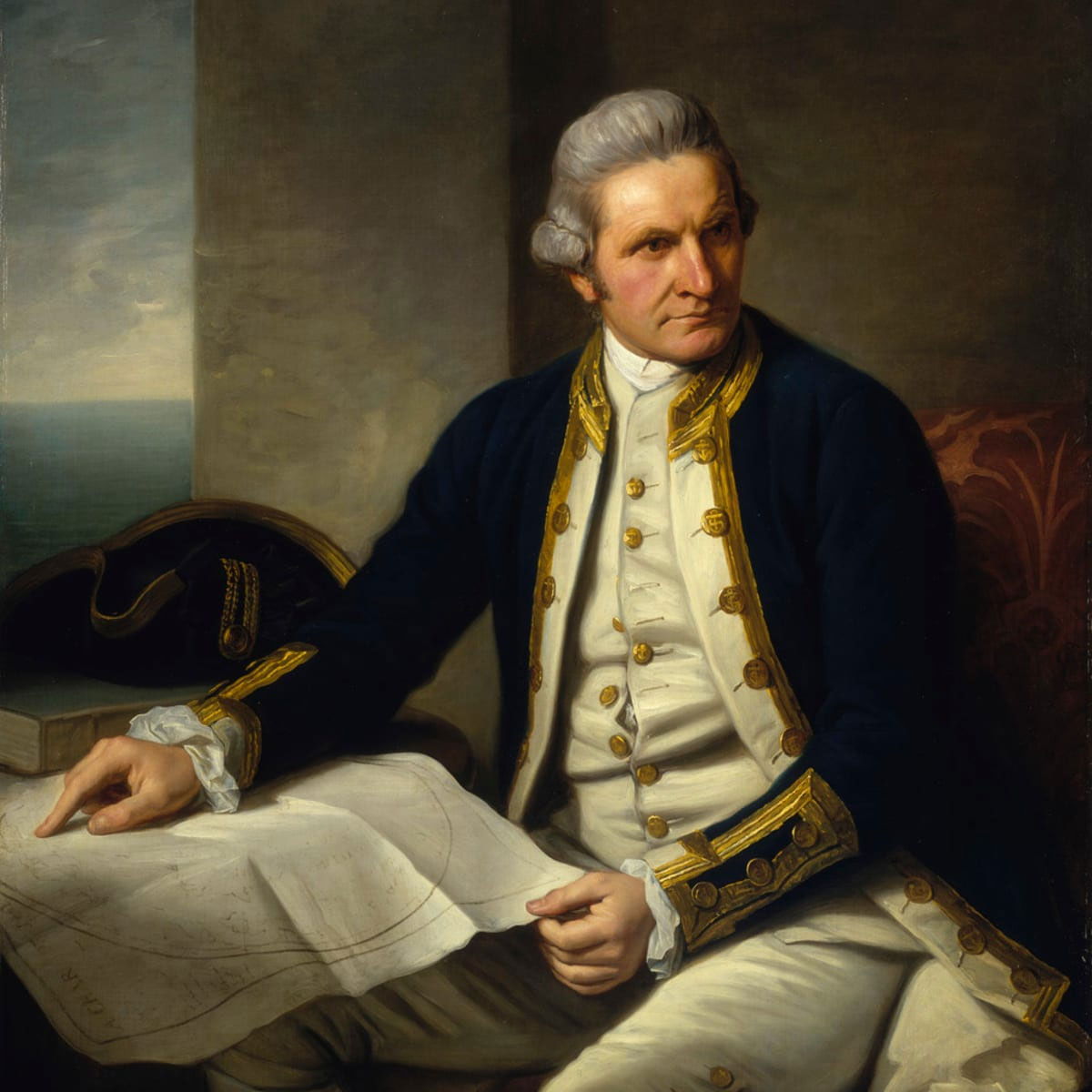Four Indigenous Australian spears taken during Captain Cook's visit to Kamay (Botany Bay) in 1770 will be returned to Country from the British college that has held them.
The spears were taken from Kamay when the HMB Endeavour, captained by Lieutenant James Cook, was charting Australia's east coast.
Cook recorded that 40 spears were taken from the camps of Aboriginal people living there in April 1770.
READ MORE: Aussies stranded after Jetstar flight 'cancelled'

Lord Sandwich of the British Admiralty presented the four spears to Cambridge University's Trinity College soon after Cook returned to England, and they have been part of the college collection since 1771.
The four spears, which have since 1914 been cared for by Cambridge's Museum of Archaeology and Anthropology, are all that remain of the original 40.
Now, Trinity College has committed to returning the spears to the Aboriginal community at La Perouse, and is speaking with the UK Charity Commission about transferring legal title.
READ MORE: Man gunned down outside Sydney martial arts gym

The decision followed a decade of discussion between the museum, and representatives of the Gweagal people - from whom the spears were taken - the broader Dharawal nation, and community organisations including the La Perouse Local Aboriginal Land Council.
A formal repatriation request was made in December last year.
The plan is for the relationship between Cambridge and the La Perouse Indigenous community to continue after the spears have been returned to Country, with senior Gweagal clan leader Rod Mason making contemporary spears for display at the museum.
These spears will show both how traditional knowledge is passed down, and how the community has adapted to new technologies.
READ MORE: Big overhaul on the cards for Australia Post

It's hoped the spears taken by Cook will be returned within months, to be displayed at a new centre being built at Kurnell in Botany Bay.
La Perouse Local Aboriginal Land Council chairperson, Noeleen Timbery said the spears would be preserved on Country for future generations.
"They are an important connection to our past, our traditions and cultural practices, and to our ancestors," she said.
"Our Elders have worked for many years to see their ownership transferred to the traditional owners of Botany Bay.
"Many of the families within the La Perouse Aboriginal community are descended from those who were present during the eight days the Endeavour was anchored in Kamay in 1770."
Trinity College Master, Dame Sally Davies, also welcomed the decision to return the spears.
"Trinity is committed to better understanding the College's history, and to addressing the complex legacies of the British empire, not least in our collections," she said.
Dharawal Elder Dr Shayne Williams said the spears were of "immeasurable value" and offered "powerful, tangible connections" to the commmunity's forebears.
"I want to acknowledge the respectfulness of Trinity College in returning these spears back to our community," he said.
"In caring for the spears for over 252 years, Trinity College has ensured that these priceless artefacts can now be utilized for cultural education by the Aboriginal community into the future."
Sign up here to receive our daily newsletters and breaking news alerts, sent straight to your inbox.
